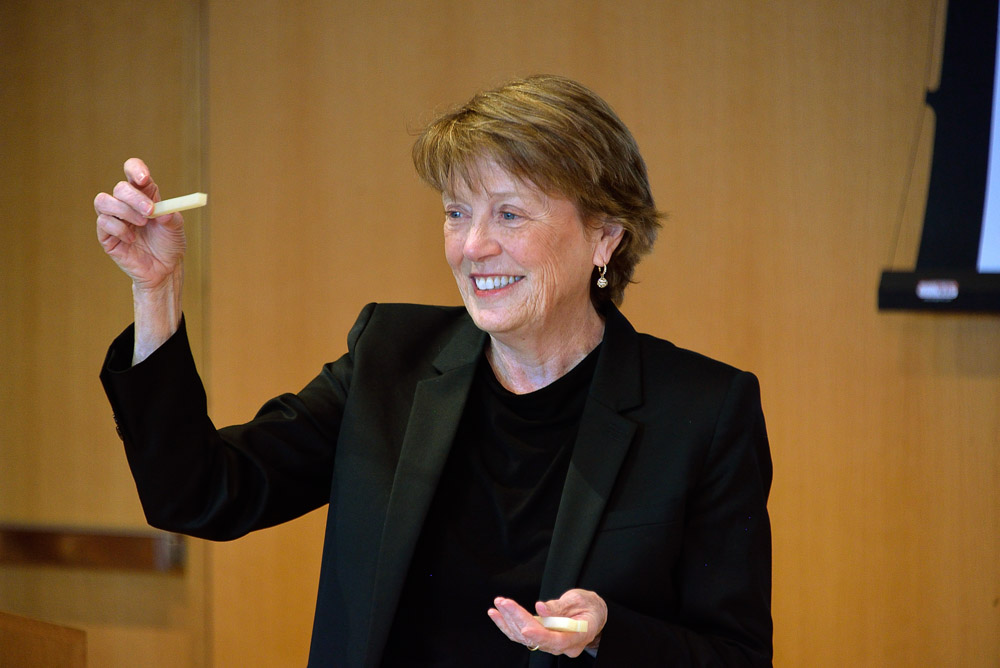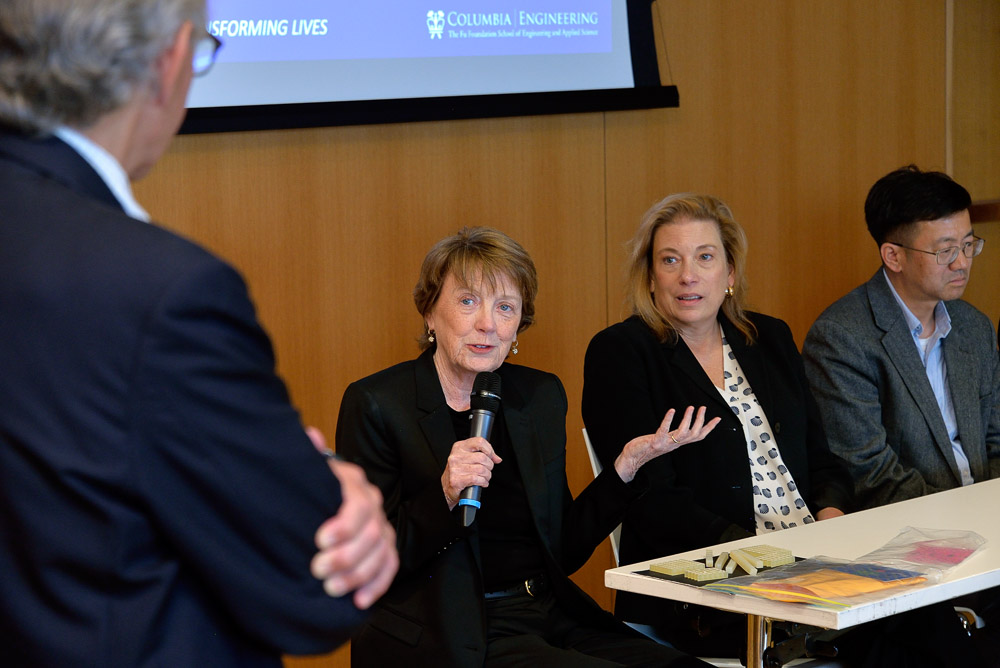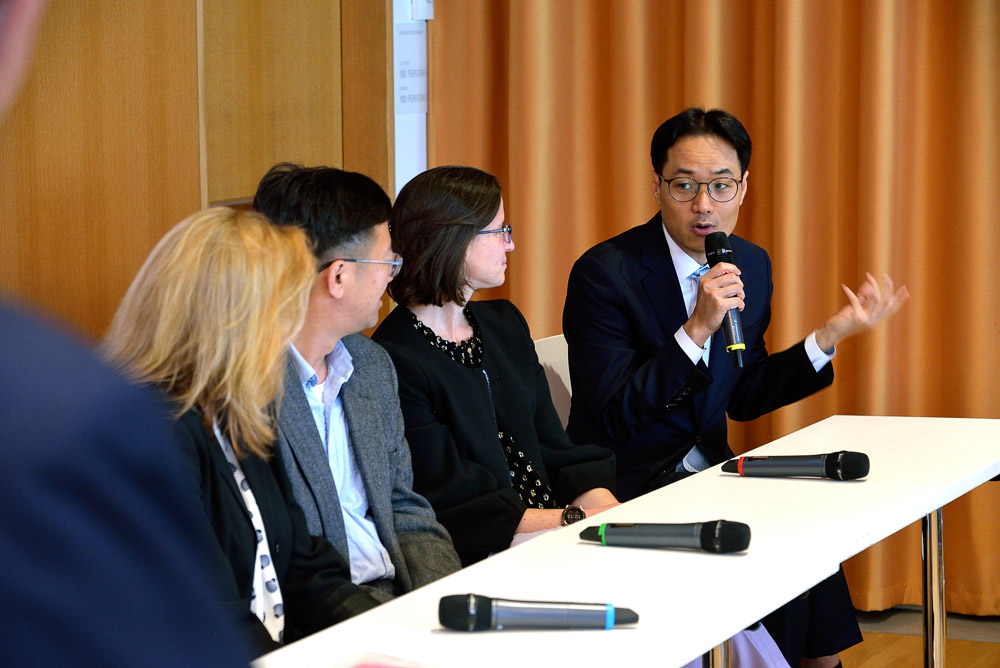
The Department of Mechanical Engineering and Applied Mechanics (MEAM) recently hosted the Boyce Symposium on April 18 in honor of Mary C. Boyce, recipient of the 2024 Benjamin Franklin Medal in Mechanical Engineering. Boyce, a professor of mechanical engineering, Provost Emerita of Columbia University, and Dean Emerita of Columbia Engineering, was celebrated for her groundbreaking work in the nonlinear mechanics of polymers and the multiscale design of soft composite materials.
The symposium, titled Deformation from Molecules to Continua, showcased a range of perspectives and insights from four invited speakers as well as a keynote address from Mary Boyce herself. The event highlighted the intersection of polymer mechanics, soft material design, and advanced fabrication techniques.
Invited Speakers:
- Ellen M. Arruda from the University of Michigan presented on the “Mechanics of Soft Biological Tissues.” She described an interdisciplinary approach to studying soft tissue biomechanics, including efforts to refine and innovate experimental methods for soft material testing and characterization. Her talk focused on challenges in material property determination and the mechanical properties of tissues such as the anterior cruciate ligament (ACL) and supraspinatus tendon (rotator cuff).
- H. Jerry Qi from the Georgia Institute of Technology discussed “Polymer Mechanics and 4D Printing.” His presentation covered advances in 3D printing, particularly its integration with active materials, leading to 4D printing. Qi emphasized the importance of understanding polymer mechanics in driving new developments in this emerging field.
- Meredith Silberstein from Cornell University spoke on “Coupling Mechanics, Chemistry, and Biology to Understand and Control Polymer Functionality.” Silberstein explored the possibilities of dynamic covalent and non-covalent bonding in polymers, enhancing their mechanical properties and imbuing them with non-mechanical functions such as ionic conductivity and self-sensing.
- Hansohl Cho from the Korea Advanced Institute of Science and Technology (KAIST) addressed “Mechanics of Random Microstructures: From Polymers and Crystalline Metals to Architected Materials.” Cho’s talk focused on designing heterogeneous soft material architectures inspired by random microstructures in synthetic or natural polymers and crystalline metals.
Mary C. Boyce’s Keynote Address:

Mary C. Boyce’s presentation, titled “Molecular and Micro-Structural Mechanics and Design of Soft Materials,” emphasized the innovative potential of soft synthetic and natural polymeric-based materials. Boyce explored topics such as physically-based models of elastomeric mechanics, versatile co-polymers, and the behavior of natural analogs such as mussel byssal threads. Her talk concluded with an exploration of multi-scale nonlinear mechanics and the opportunities provided by advanced fabrication techniques.
The symposium concluded with a panel featuring all the speakers, who engaged in a lively discussion and took questions from the audience. This interactive session allowed attendees to delve deeper into the topics presented and explore potential avenues for future research and collaboration.
The symposium underscored the transformative contributions of Mary C. Boyce to the field of mechanical engineering and her impact on the study of polymers and soft materials. Through the perspectives shared by the speakers, attendees gained a deeper understanding of the potential for new innovations in material science and engineering.



